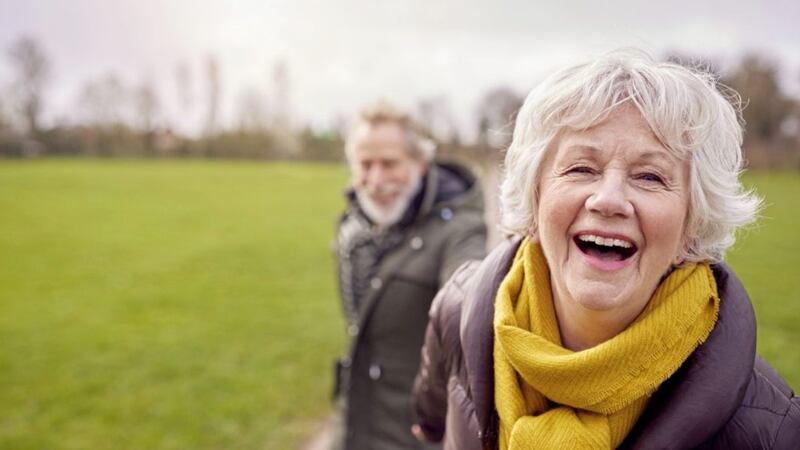JANUARY can feel never ending, especially when it is cold, grey and dark outside. This year we have the added pressure of a global pandemic and the ripple effects of Brexit to add to our stress levels.
For many people, the ‘winter blues’, or Sad (Seasonal Affective Disorder), can really hit in January and February. Our shorter, darker days means we tend to get very little natural light exposure at this time of year. This can be even worse if you work shifts.
Sad can hit you with a variety of symptoms, including low mood, listlessness, an increased need for sleep and cravings for sweets and carbohydrates – inevitably leading to weight gain. The exact cause of Sad is not yet properly understood but it is thought that an imbalance of neurotransmitters is involved, and that vitamin D metabolism could be a factor too.
Melatonin (our sleep hormone) is made in the body from serotonin (our happy hormone). Low levels of daylight in the winter can disrupt the balance of these two neurotransmitters. Darker days and lack of sunlight can reduce levels of serotonin and increase our production of melatonin, leaving us feeling sleepy and demotivated during the day.
So what can you do about it?
Get out there
Sad can make getting outside seem like an insurmountable task but daylight is an essential element. It is recommended that we get outside for at least 30 minutes a day. This helps reset our circadian rhythm, rebalance melatonin and help us feel a whole lot better. If 30 minutes feels like a lot, then why not break it down into three shorter, 10-minute walks. Looking out of a window doesn’t cut it, as glass blocks the ultraviolet light we need to serotonin balance.
Up your vitamin D levels
It is well known that low levels of vitamin D can adversely affect our mood. As it is made in the skin under the influence of sunlight, we make less of it during the winter.
There are not many good food sources of vitamin D. Foods naturally vitamin D-rich are oily fish (salmon, sardines, fresh tuna, trout, halibut, mackerel, etc), high-quality cod liver oil, egg yolks and liver. Mushrooms contain a form of vitamin D called D2 (ergocalciferol) but what your body needs is D3 (cholecalciferol).
Research shows that D2 is less effective at raising levels of vitamin D in the blood. Fortified foods (like cereals, margarine and some yoghurts) contain D2, and usually even a synthetic one. It doesn’t cost much to get your vitamin D levels checked, and if yours is low, food is not going to cut it. You may have to get yourself a nutritional supplement of vitamin D3.
Taking a vitamin D supplement (around 2000iu a day is recommended for most adults) between October and May is a good idea. As vitamin D also help support immunity, it can be an important part of your defence against Covid-19 too.
Eat some good mood foods
Diet can help with Sad, although not as efficiently as light treatment and exercise.
The amino acid tryptophan is a precursor for serotonin. It is one of the eight essential amino acids and it is found in a variety of foods including dairy products, eggs, red meat, poultry, fish, chocolate, oats, dried dates, chickpeas, almonds, sunflower and pumpkin seeds, bananas and peanuts.
Just make sure you eat some carbohydrate with your tryptophan food, to make sure it crosses your blood-brain barrier to get to where the body needs it. Complex carbohydrates like brown rice, brown pasta, wholegrain bread or oats are ideal.
Sugar is a surefire way to deplete mood, so cut it out and much as you can.
Move it
One of the best ways to combat Sad is exercising outdoors. When your body feels better, so does the mind. It doesn’t really matter what you do as long as you are active.
Whether you like to run, hop, skip, jump or bike, being active is good for your body and your mind. Aim for half an hour most days, no matter what the weather.








